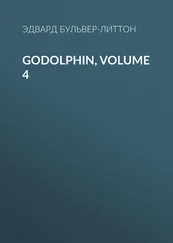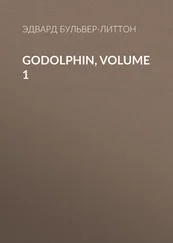Эдвард Бульвер-Литтон - Devereux — Volume 03
Здесь есть возможность читать онлайн «Эдвард Бульвер-Литтон - Devereux — Volume 03» — ознакомительный отрывок электронной книги совершенно бесплатно, а после прочтения отрывка купить полную версию. В некоторых случаях можно слушать аудио, скачать через торрент в формате fb2 и присутствует краткое содержание. Жанр: foreign_prose, История, literature_19, Европейская старинная литература, foreign_edu, foreign_antique, на английском языке. Описание произведения, (предисловие) а так же отзывы посетителей доступны на портале библиотеки ЛибКат.
- Название:Devereux — Volume 03
- Автор:
- Жанр:
- Год:неизвестен
- ISBN:нет данных
- Рейтинг книги:3 / 5. Голосов: 1
-
Избранное:Добавить в избранное
- Отзывы:
-
Ваша оценка:
- 60
- 1
- 2
- 3
- 4
- 5
Devereux — Volume 03: краткое содержание, описание и аннотация
Предлагаем к чтению аннотацию, описание, краткое содержание или предисловие (зависит от того, что написал сам автор книги «Devereux — Volume 03»). Если вы не нашли необходимую информацию о книге — напишите в комментариях, мы постараемся отыскать её.
Devereux — Volume 03 — читать онлайн ознакомительный отрывок
Ниже представлен текст книги, разбитый по страницам. Система сохранения места последней прочитанной страницы, позволяет с удобством читать онлайн бесплатно книгу «Devereux — Volume 03», без необходимости каждый раз заново искать на чём Вы остановились. Поставьте закладку, и сможете в любой момент перейти на страницу, на которой закончили чтение.
Интервал:
Закладка:
Edward Bulwer-Lytton
Devereux — Volume 03
BOOK III
CHAPTER I
SPINOZA is said to have loved, above all other amusements, to put flies into a spider's web; and the struggles of the imprisoned insects were wont to bear, in the eyes of this grave philosopher, so facetious and hilarious an appearance, that he would stand and laugh thereat until the tears "coursed one another down his innocent nose." Now it so happened that Spinoza, despite the general (and, in my most meek opinion, the just) condemnation of his theoretical tenets, 1 1 One ought, however, to be very cautious before one condemns a philosopher. The master's opinions are generally pure: it is the conclusions and corollaries of his disciples that "draw the honey forth that drives men mad." Schlegel seems to have studied Spinoza /de fonte/, and vindicates him very earnestly from the charges brought against him,—atheism, etc.—ED.
was, in character and in nature, according to the voices of all who knew him, an exceedingly kind, humane, and benevolent biped; and it doth, therefore, seem a little strange unto us grave, sober members of the unphilosophical Many, that the struggles and terrors of these little winged creatures should strike the good subtleist in a point of view so irresistibly ludicrous and delightful. But, for my part, I believe that that most imaginative and wild speculator beheld in the entangled flies nothing more than a living simile—an animated illustration—of his own beloved vision of Necessity; and that he is no more to be considered cruel for the complacency with which he gazed upon those agonized types of his system than is Lucan for dwelling with a poet's pleasure upon the many ingenious ways with which that Grand Inquisitor of Verse has contrived to vary the simple operation of dying. To the bard, the butchered soldier was only an epic ornament; to the philosopher, the murdered fly was only a metaphysical illustration. For, without being a fatalist, or a disciple of Baruch de Spinoza, I must confess that I cannot conceive a greater resemblance to our human and earthly state than the penal predicament of the devoted flies. Suddenly do we find ourselves plunged into that Vast Web,—the World; and even as the insect, when he first undergoeth a similar accident of necessity, standeth amazed and still, and only by little and little awakeneth to a full sense of his situation; so also at the first abashed and confounded, we remain on the mesh we are urged upon, ignorant, as yet, of the toils around us, and the sly, dark, immitigable foe that lieth in yonder nook, already feasting her imagination upon our destruction. Presently we revive, we stir, we flutter; and Fate, that foe—the old arch-spider, that hath no moderation in her maw—now fixeth one of her many eyes upon us, and giveth us a partial glimpse of her laidly and grim aspect. We pause in mute terror; we gaze upon the ugly spectre, so imperfectly beheld; the net ceases to tremble, and the wily enemy draws gently back into her nook. Now we begin to breathe again; we sound the strange footing on which we tread; we move tenderly along it, and again the grisly monster advances on us; again we pause; the foe retires not, but remains still, and surveyeth us; we see every step is accompanied with danger; we look round and above in despair; suddenly we feel within us a new impulse and a new power! we feel a vague sympathy with /that/ unknown region which spreads beyond this great net,—/that limitless beyond/ hath a mystic affinity with a part of our own frame; we unconsciously extend our wings (for the soul to us is as the wings to the fly!); we attempt to rise,—to soar above this perilous snare, from which we are unable to crawl. The old spider watcheth us in self-hugging quiet, and, looking up to our native air, we think,—now shall we escape thee. Out on it! We rise not a hair's breadth: we have the /wings/, it is true, but the /feet/ are fettered. We strive desperately again: the whole web vibrates with the effort; it will break beneath our strength. Not a jot of it! we cease; we are more entangled than ever! wings, feet, frame, the foul slime is over all! where shall we turn? every line of the web leads to the one den,—we know not,—we care not,—we grow blind, confused, lost. The eyes of our hideous foe gloat upon us; she whetteth her insatiate maw; she leapeth towards us; she fixeth her fangs upon us; and so endeth my parallel!
But what has this to do with my tale? Ay, Reader, that is thy question; and I will answer it by one of mine. When thou hearest a man moralize and preach of Fate, art thou not sure that he is going to tell thee of some one of his peculiar misfortunes? Sorrow loves a parable as much as mirth loves a jest. And thus already and from afar, I prepare thee, at the commencement of this, the third of these portions into which the history of my various and wild life will be divided, for that event with which I purpose that the said portion shall be concluded.
It is now three months after my entire recovery from my wounds, and I am married to Isora!—married,—yes, but /privately/ married, and the ceremony is as yet closely concealed. I will explain.
The moment Isora's anxiety for me led her across the threshold of my house it became necessary for her honour that our wedding should take place immediately on my recovery: so far I was decided on the measure; now for the method. During my illness, I received a long and most affectionate letter from Aubrey, who was then at Devereux Court: /so/ affectionate was the heart-breathing spirit of that letter, so steeped in all our old household remembrances and boyish feelings, that coupled as it was with a certain gloom when he spoke of himself and of worldly sins and trials, it brought tears to my eyes whenever I recurred to it; and many and many a time afterwards, when I thought his affections seemed estranged from me, I did recur to it to convince myself that I was mistaken. Shortly afterwards I received also a brief epistle from my uncle; it was as kind as usual, and it mentioned Aubrey's return to Devereux Court. "That unhappy boy," said Sir William, "is more than ever devoted to his religious duties; nor do I believe that any priest-ridden poor devil in the dark ages ever made such use of the scourge and the penance."
Now, I have before stated that my uncle would, I knew, be averse to my intended marriage; and on hearing that Aubrey was then with him, I resolved, in replying to his letter, to entreat the former to sound Sir William on the subject I had most at heart, and ascertain the exact nature and extent of the opposition I should have to encounter in the step I was resolved to take. By the same post I wrote to the good old knight in as artful a strain as I was able, dwelling at some length upon my passion, upon the high birth, as well as the numerous good qualities of the object, but mentioning not her name; and I added everything that I thought likely to enlist my uncle's kind and warm feelings on my behalf. These letters produced the following ones:—
FROM SIR WILLIAM DEVEREUX.
'Sdeath, nephew Morton,—but I won't scold thee, though thou deservest it. Let me see, thou art now scarce twenty, and thou talkest of marriage, which is the exclusive business of middle age, as familiarly as "girls of thirteen do of puppy-dogs." Marry!—go hang thyself rather. Marriage, my dear boy, is at the best a treacherous proceeding; and a friend—a true friend—will never counsel another to adopt it rashly. Look you: I have had experience in these matters; and, I think, the moment a woman is wedded some terrible revolution happens in her system; all her former good qualities vanish, /hey presto/! like eggs out of a conjuror's box; 'tis true they appear on t' other side of the box, the side turned to other people, but for the poor husband they are gone forever.
Читать дальшеИнтервал:
Закладка:
Похожие книги на «Devereux — Volume 03»
Представляем Вашему вниманию похожие книги на «Devereux — Volume 03» списком для выбора. Мы отобрали схожую по названию и смыслу литературу в надежде предоставить читателям больше вариантов отыскать новые, интересные, ещё непрочитанные произведения.
Обсуждение, отзывы о книге «Devereux — Volume 03» и просто собственные мнения читателей. Оставьте ваши комментарии, напишите, что Вы думаете о произведении, его смысле или главных героях. Укажите что конкретно понравилось, а что нет, и почему Вы так считаете.












